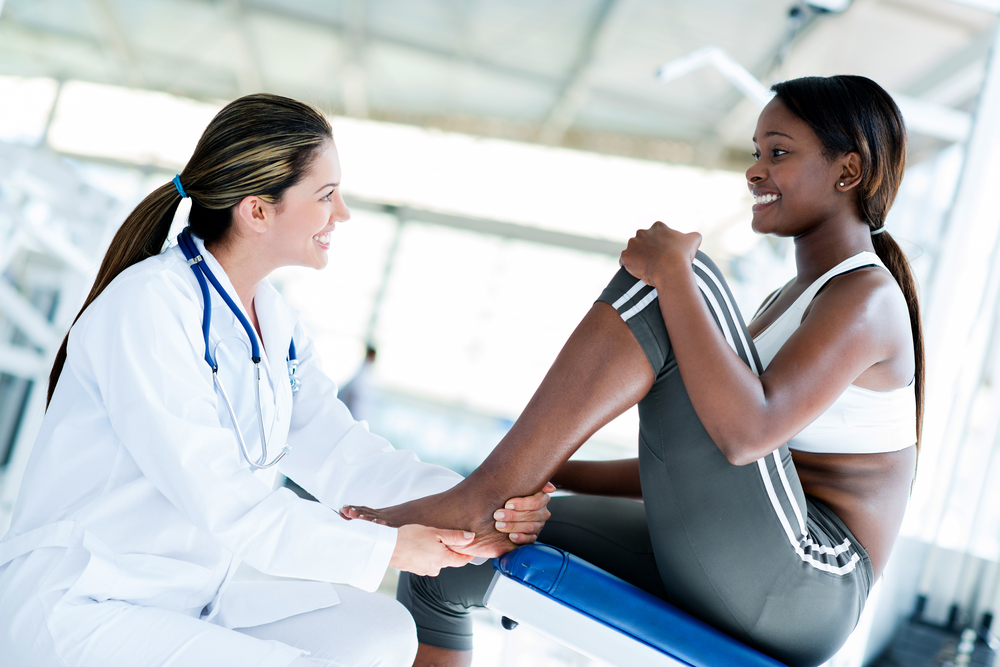As student athletes across Delaware gear up for a new sports season, ensuring they’re physically prepared is more important than ever. From high-energy goalkeepers to agile basketball players, each athlete deserves to perform at their peak—safely. That’s where sports physicals come in.
Sports physicals, also known as pre-participation physical evaluations (PPEs), play a critical role in preventing injuries, identifying health concerns, and ensuring student athletes are physically fit to compete. Bayhealth, a leading provider in Delaware, offers these evaluations through its Occupational Health clinics in Kent and Sussex counties—making it easy for parents and students to prioritize health before hitting the field or court.

Why Sports Physicals Are Essential for Student Athletes
Required by Schools, Endorsed by Experts
Most schools mandate a sports physical before a student can participate in extracurricular athletics. This requirement isn’t just a formality—it’s a proactive approach to protect young athletes from unnecessary health risks.
The main objectives of a sports physical include:
- Evaluating overall health and fitness
- Identifying conditions that may limit participation
- Providing advice to prevent injuries
- Reviewing past injuries and recovery progress
- Monitoring chronic medical issues like asthma or diabetes
Medical Insights That Go Beyond the Basics
Physicians use the sports physical to gather valuable health information that may not surface during regular check-ups. With a deeper dive into medical history and physical capability, doctors can offer individualized care recommendations to enhance the athlete’s performance and safety.
When and How to Schedule a Sports Physical
Schedule at Least 6 Weeks in Advance
Experts recommend that sports physicals be completed at least six weeks before the start of the sports season. This timeline allows for proper assessment, recovery from minor injuries, and necessary conditioning before competitive play begins.
Booking early also provides peace of mind—ensuring there’s enough time to consult with specialists or complete additional testing if needed.
What Happens During a Sports Physical?
Detailed Medical Examination
During a sports physical, a physician performs several key assessments:
- Vital Signs: Blood pressure, heart rate, and breathing patterns
- Musculoskeletal Evaluation: Checks on joints, flexibility, and posture
- Vision Test: Ensures proper eyesight for safe play
- Medical History Review: Discusses past illnesses, surgeries, injuries, and family history of conditions like heart disease
This thorough exam helps identify any existing or potential issues that might compromise the student athlete’s performance or safety.
Preparing for the Sports Physical: What Parents and Students Should Know
Dress Appropriately
Athletes should wear comfortable, loose-fitting clothing or athletic wear, which makes physical evaluations easier and quicker.
Be Honest with Your Doctor
Encourage your child to be open about past injuries or lingering discomforts. Honest communication allows the doctor to create a plan that supports both recovery and growth.
Bring Medical Records
Don’t forget to carry:
- A completed medical history form
- Immunization records
- Any prescribed medications or inhalers used by the athlete
The Benefits of Sports Physicals for Long-Term Health
A sports physical is more than a seasonal obligation—it’s a step toward lifelong health and well-being. By addressing concerns early, athletes can:
- Avoid long-term complications
- Improve recovery after injuries
- Get nutritional and conditioning guidance
- Boost confidence going into the season
It also encourages families to establish strong health habits and create open communication about wellness.
Why Choose Bayhealth for Your Child’s Sports Physical?
Bayhealth’s Occupational Health clinics in Kent and Sussex counties are equipped with experienced professionals who understand the specific needs of young athletes. They not only provide accurate assessments but also educate students and families on how to maintain peak health during the season.
Scheduling is easy, and same-week appointments are often available, especially during the back-to-school rush.
Final Thoughts: Prioritize Sports Physicals for a Strong Season Start
Whether your child is a seasoned athlete or just starting their sports journey, a sports physical is an essential part of their preparation. It’s the first step in ensuring they can compete with confidence, reduce risk of injury, and maintain overall well-being.
Don’t wait until the last minute—schedule a sports physical today and give your student athlete the advantage of safe, smart, and healthy play.
Frequently Asked Questions:
Q1: At what age should my child start getting sports physicals?
A: Most schools require sports physicals starting around middle school, typically ages 11–13. However, any child involved in organized sports can benefit from an early evaluation.
Q2: What happens if an issue is found during the physical?
A: If a concern arises, the physician may recommend further evaluation, treatment, or temporary activity restrictions to ensure your child’s safety.
Q3: Can my child use their annual wellness check as a sports physical?
A: Some schools may accept an annual wellness check, but it’s best to confirm that the exam meets all requirements for athletic participation.
Q4: How often is a sports physical required?
A: Typically, schools require a new sports physical each school year, even if the student plays multiple sports.
Q5: How long does a sports physical appointment take?
A: A standard sports physical typically takes 20 to 30 minutes, depending on the athlete’s medical history and any questions or issues raised.




